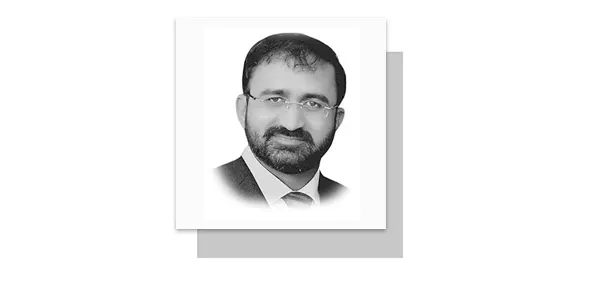THIS study explores the various complex aspects of social justice and equality within the distinct societal context of Pakistan, with a focus on incorporating an Islamic perspective. This study examines how fundamental Islamic principles manifest inside the framework of Pakistani society, exerting an impact on social frameworks, policies, and day-to-day engagements. Also, it looks at historical examples within Islamic organizations that exemplify the manifestation of social justice and equality in government and social welfare. The strategies employed by Pakistan to address social difficulties through legal reforms, economic policies and public awareness while maintaining a strong connection to its Islamic past are also explored.
The primary areas of emphasis encompass the advancement of gender parity within the confines of delineated societal functions, the equitable allocation of resources via mechanisms like zakat, and the safeguarding of the rights of marginalized groups. Moreover, the study investigates methods for augmenting interfaith concordance and fortifying the legal structure to protect social justice and parity. The prevalence of Islamic social justice ideas in Pakistani society is attributed to its primarily Muslim demographic. Islamic teachings inform the principles of social justice and equality. These principles exert a substantial influence on numerous facets of Pakistani culture. Presented below are three comprehensive illustrations that demonstrate the manifestation of Islamic social justice within the context of Pakistani society:
The practice of zakat in Pakistan is a concrete manifestation of Islamic principles of social justice. Muslim individuals are religiously obligated to allocate a proportion of their financial resources towards assisting less fortunate individuals. These donated funds are utilized to support and aid marginalized individuals who face social disadvantages. The government plays a crucial role in facilitating the collection and distribution of zakat money, specifically allocated towards poverty alleviation, healthcare, education and other social welfare programs. This practice has the dual purpose of mitigating economic inequities and upholding the Islamic tenet of wealth redistribution. This policy ensures that individuals with higher socioeconomic status actively support the wellbeing of less privileged individuals, fostering a society that is characterized by greater fairness and equality.
Pakistan acknowledges and affirms the status of religious minority groups, including Christians, Hindus, Sikhs, and others, as individuals entitled to legal protection and societal inclusion by Islamic values of social justice. Consistent with these guiding principles, the government has enacted affirmative action policies to advance the rights and welfare of marginalized communities. An illustration of this can be observed in reserving reserved seats for religious minorities within the national and provincial assemblies, guaranteeing their inclusion and participation in the legislative proceedings. Furthermore, there exists a range of legal provisions aimed at safeguarding the rights of minority groups, including the Prevention of Forced Conversions Act. This legislation specifically addresses instances of coerced conversions and serves to defend the rights of religious minorities.
These policies indicate the Islamic principles of justice, equity and safeguarding the rights of all individuals, irrespective of their religious affiliations. Pakistan presents an intriguing framework to examine the complex interaction between religious precepts and socio-economic factors. Social justice and equality hold significant importance in Islam, as they underscore the values of fairness, compassion and the right allocation of resources and opportunities throughout society. The concepts of justice, equality, and compassion are emphasized in Islamic teachings, as documented in the Quran and Hadith. Within the Islamic framework, the ideas about social justice find their origins firmly entrenched in the Holy Quran and Sunnah, encompassing the teachings and practices of Prophet Muhammad. The doctrine of equality before the law, as elucidated in the Quran (5:8), underscores the imperative of fair treatment for all individuals, irrespective of their societal standing, financial resources, or personal history.
O believers! Stand firm for Allah and testify honestly. Do not let people’s animosity cause injustice. Be fair! That’s more right. Be watchful of Allah. Your actions are known to Allah. This concept finds support in the Hadith, whereby the Prophet Muhammad (PBUH) articulated, “The individuals possess equality akin to the teeth of a comb”
Another fundamental value that can be observed is the equitable distribution of wealth, as demonstrated through the required practice of zakat which involves donating alms. The significance of wealth redistribution from the rich to the less fortunate, as well as the promotion of economic justice and poverty alleviation, is emphasized in the Quran. The ideals of social justice and equality hold significant importance in the Islamic faith, providing a comprehensive framework for resolving the socio-economic imbalances and issues prevalent in Pakistani society. Through a comprehensive analysis of these principles from an Islamic standpoint, Pakistan has the potential to navigate a trajectory toward a society characterized by fairness and equality, all the while upholding its Islamic beliefs. To advance towards this objective, it is imperative to undertake measures aimed at mitigating economic inequities, fostering gender equality, safeguarding minority rights and fortifying the legal framework. Pakistan has the potential to foster a society characterized by fairness and compassion for all persons, irrespective of their backgrounds or circumstances, by leveraging its abundant Islamic tradition in the pursuit of social justice and equality.
— The Writer is PhD in Islamic Studies from NUML Islamabad and Author of Five Books & Thirty Five Research Publications.
Email: [email protected]









